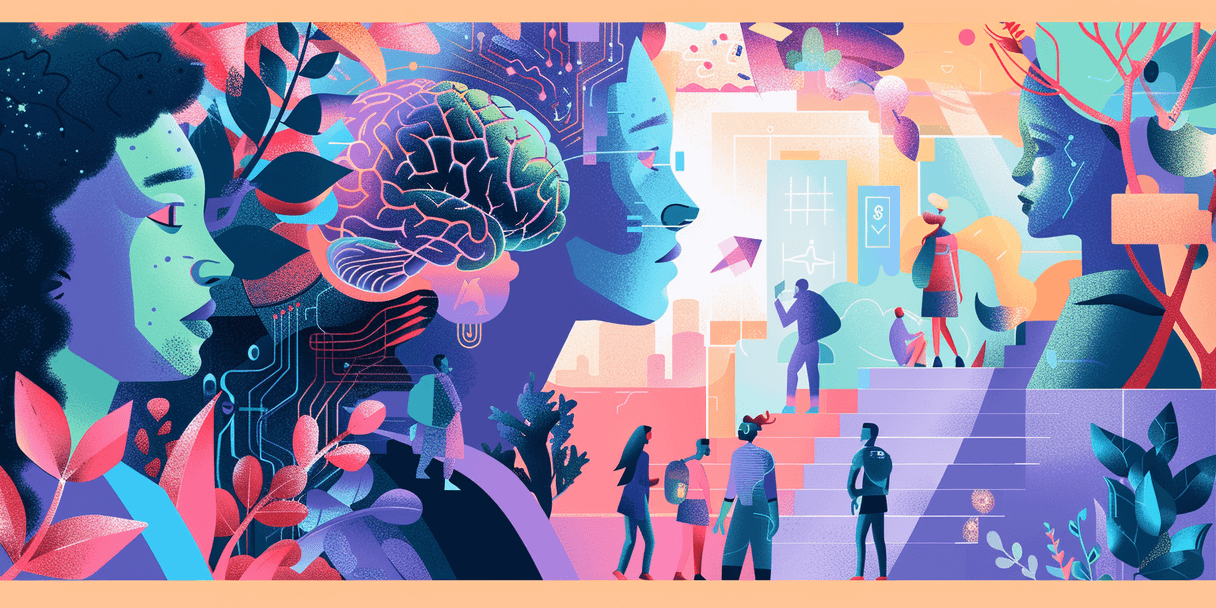Artificial Intelligence (AI) is no longer just a futuristic concept or confined to the realms of science fiction. Today, it's a dynamic tool that is being harnessed to address some of the world’s most pressing challenges. From combating climate change to improving healthcare outcomes and enhancing disaster response, AI's potential to drive social good is being realized across various sectors. Here, we explore some of the most impactful real-world applications of AI that are making a significant difference in society.
1. Healthcare: Enhancing Diagnosis and Treatment
AI's role in healthcare is perhaps one of the most profound. Machine learning algorithms can analyze vast amounts of medical data much faster than human doctors, leading to quicker and more accurate diagnoses. For instance, AI systems like IBM Watson can interpret medical images, recognize patterns and anomalies, and suggest diagnoses with high accuracy. This capability is particularly vital in areas with a shortage of medical professionals.
Moreover, AI is instrumental in personalized medicine. Algorithms can predict how different individuals will respond to treatments based on their unique genetic makeup. This approach not only improves treatment effectiveness but also minimizes side effects, leading to better patient outcomes.
2. Environmental Conservation: Tackling Climate Change
AI is a powerful ally in the fight against climate change. It helps model complex climate systems, providing precise forecasts and enabling better decision-making. AI applications in this field range from optimizing energy use in real-time to developing more efficient renewable energy systems.
One notable project is Google’s AI-powered recommendation system for energy use in data centers, which has significantly reduced energy consumption by optimizing cooling systems. Similarly, AI-driven platforms are being used for real-time monitoring and management of air quality in cities, helping to mitigate pollution levels effectively.
3. Agriculture: Boosting Crop Yield and Sustainability
In agriculture, AI technologies are revolutionizing the way food is grown. Through data collected from drones and IoT sensors, AI systems can monitor crop health, soil quality, and water usage. This information allows farmers to make informed decisions that lead to increased crop yield and reduced resource waste.
AI also plays a crucial role in pest control, identifying and predicting pest attacks, and suggesting optimal interventions. This not only ensures the health of the crops but also reduces the reliance on chemical pesticides, promoting sustainable agricultural practices.
4. Disaster Response: Enhancing Preparedness and Recovery
AI enhances disaster response efforts by analyzing data from satellites, sensors, and social media to predict and respond to emergencies more effectively. For example, AI algorithms can predict flood patterns and trigger early warning systems, saving lives and reducing economic losses.
Post-disaster, AI helps in damage assessment through satellite and aerial imagery analysis, speeding up the recovery process. Organizations like the United Nations have employed AI to map disaster-affected areas and coordinate aid distribution efficiently.
5. Social Services: Improving Public Sector Efficiency
AI is transforming social services by enabling governments to deliver services more efficiently and transparently. For instance, AI tools are used to detect and prevent fraud in welfare programs. They are also employed in predictive analytics to identify areas that require urgent social interventions.
In education, AI systems are being used to personalize learning based on individual student’s strengths and weaknesses, thereby improving educational outcomes. AI-driven platforms also help in monitoring and evaluating the effectiveness of various educational programs.
Conclusion
The applications of AI for social good are vast and varied. As technology continues to evolve, its potential to solve complex societal problems expands. However, it's crucial to approach AI implementation responsibly, ensuring ethical considerations are at the forefront to avoid unintended consequences. By harnessing AI responsibly, we can unlock its full potential to benefit society and build a more sustainable and equitable world.

